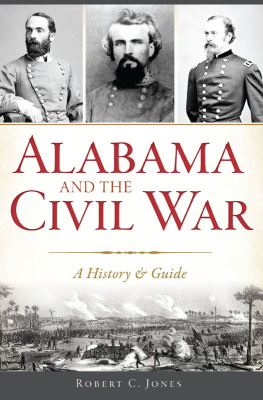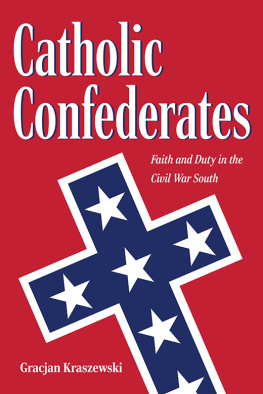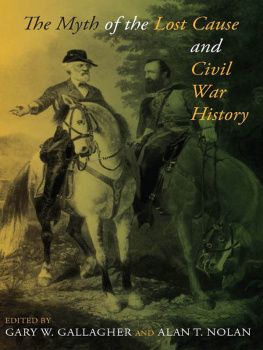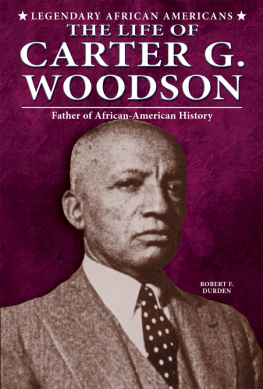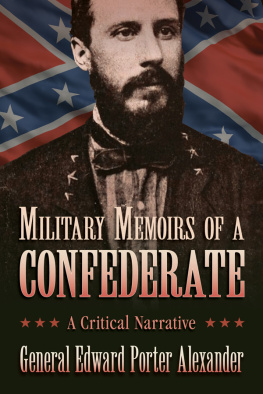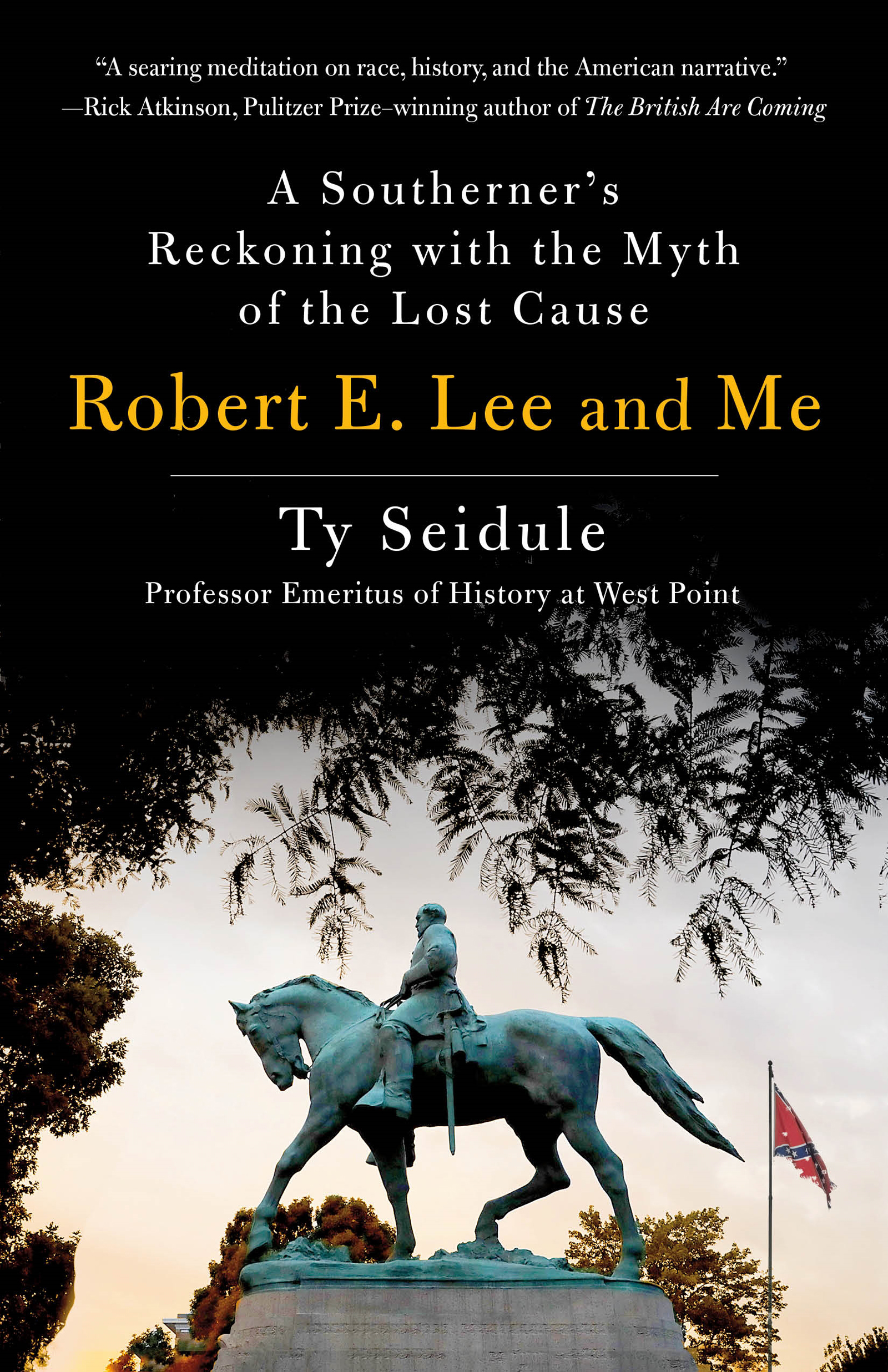The author and publisher have provided this e-book to you for your personal use only. You may not make this e-book publicly available in any way. Copyright infringement is against the law. If you believe the copy of this e-book you are reading infringes on the authors copyright, please notify the publisher at: us.macmillanusa.com/piracy.
In the summer of 2015, PragerU, a conservative website specializing in short videos, published a five-minute lecture I wrote and recorded titled Was the Civil War About Slavery? In the first thirty seconds of the video I answered the question.
Many people dont want to believe that the citizens of the southern states were willing to fight and die to preserve the morally repugnant institution of slavery. There has to be another reason, we are told. Well, there isnt. The evidence is clear and overwhelming. Slavery was, by a wide margin, the single most important cause of the Civil War.
Virtually every American historian would fully subscribe to the proposition that the southern states seceded to preserve slavery, precipitating the Civil War. Yet the video went viral immediately, trending on Facebook and Twitter. The first night I kept checking the views and the comments. I couldnt believe it. My history lecture had gone viral. In twenty-four hours, more than a million people had watched it. At the end of the week, it had five million views. Today, it has had thirty million views, making it one of the most watched history lecturesin history.
Im not the first person to state the obvious: that slavery caused the Civil War. The video didnt go viral because my argument was brilliant or because the swooping graphics that accompanied the video were so effective. I think it attracted so many views for two reasons.
Timing matters. While I wrote and recorded the video in early 2015, it debuted in August, only two months after a white supremacist massacred Black churchgoers at Emanuel African Methodist Episcopal Church in Charleston. After the despicable slaughter, a picture of the young murderer appeared with a Confederate flag accompanying his racist manifesto. The nation started talking about the obvious links between the Confederate flag and white supremacy. In July, South Carolina took down the Confederate flag that had flown on the state capitol since the early 1960s. Walmart stopped selling the flag, and Apple removed mobile apps featuring the flag. At least five manufacturers stopped making the Confederate flag altogether. The Civil War and what it meant was a national story, and because it affected so many communities, the story lasted far longer than the normal news cycle.
The second reason the video became popular was me. I told the American people that the Civil War was about slavery while wearing the blue uniform of a U.S. Army officer, with the eagles of a full colonel and a complement of medals earned over the course of a thirty-year career. Additionally, scrolling along the bottom of the video was my job titleHead, Department of History, United States Military Academy, West Point.
Few people watched the video passively. Hundreds of thousands shared it with their friends, and another hundred thousand left responses. The majority of the comments were negative. Plenty of people left responses trolling my looks, which my son delighted in sharing with me. But tens of thousands of other comments ranged from the angry to the deranged to the violent. I had a public email account, and hundreds of people wrote directly to me. Some people told me that I had caved in to pressure to accept the politically correct government position. Some tried to argue with me based on their reading of history. The Civil War was really aboutpick one or morestates rights, tariffs, economics, Lincolns racism, government overreach, and on and on.
Despite my southern roots, online responses labeled me a Yankee. Two people sent an email to my West Point address threatening to kill me, to kill an army officer, over history. I couldnt believe it. Those threats seemed serious enough that I contacted the Criminal Investigation Division at West Point, which then passed the emails on to the FBI. Now more than five years after that video came out, I still receive hate emails about a short video on a subject that occurred more than 150 years ago.
The historian David Blight wrote that the Civil War is like the giant sleeping dragon of American history ever ready to rise up when we do not expect it and strike us with unbearable fire. I poked the Civil War beast, and it singed me. History is dangerous. It forms our identity, our shared story. If someone challenges a sacred myth, the reaction can be ferocious.
Yet I also heard many positive comments. High school teachers wrote to me that they use the video in their classes. Professors, particularly in the South, told me the video was effective because my credentials as an army officer and West Point professor disarmed those unwilling to accept the academic consensus.
I should have realized the video would garner controversy. Speaking to smaller audiences, I routinely encountered disbelief and hostility. Before the video came out in 2015, I had lectured on the topic of the Civil War for years. After I finished a talk in Atlanta on West Points memory of Robert E. Lee titled Gentleman or Traitor, a distinguished-looking man raised his hand and asked with the most mellifluous baritone, Colonel, you have provided no evidence that the War Between the States had anything at all to do with slavery.
Yet I had spent the first five minutes recounting the Confederate secessionists own words declaring their independence to protect and expand slavery. Nothing I could say would refute his upbringing, his feelings, and his history. Then I realized evidence didnt matter; he had chosen his own facts based on his culture. Despite the overwhelming evidence historians have gathered and my own passion to explain the cause of the Civil War and the violent segregation that followed it, I could convince no one.
One issue provided me with a clear example of my ineffectiveness in using evidence-based arguments. I chaired West Points Memorialization Committee for years. In 2011, our graduates clamored for a memorial to recognize the West Point graduates killed fighting in Afghanistan and Iraq. After ten years of war, West Point had no single memorial to the hundred graduates killed in wars since 9/11. Combat in Afghanistan and Iraq had taken a terrible toll on West Pointers. In addition to those killed in action, captains and majors teaching with me in the history department suffered from traumatic brain injury, post-traumatic stress, and amputations from their wartime service. The community needed a way to recognize its losses and its heroes.
The committee I led recommended that we repurpose an existing room in Cullum Hall and place the names of more than fifteen hundred West Point graduates who gave the last full measure of devotion to the nation from the War of 1812 through the Global War on Terror. Our leadership supported the plan, and soon we had money, a design, and a time line, but one crucial decision had not been made. Which names would be included in the new Memorial Room? One war presented a problem. Specifically, would West Point graduates who died for the Confederate States of America be included in our new Memorial Room?


